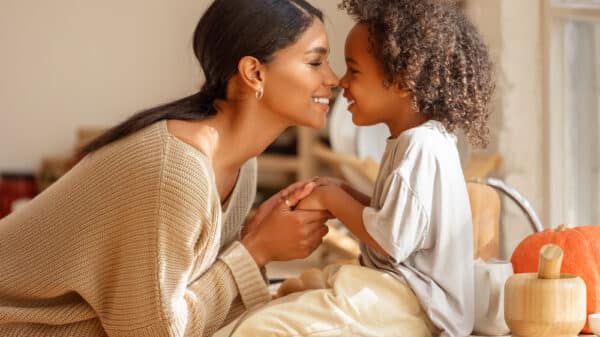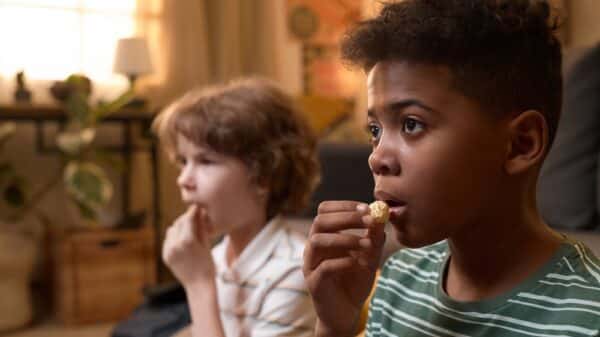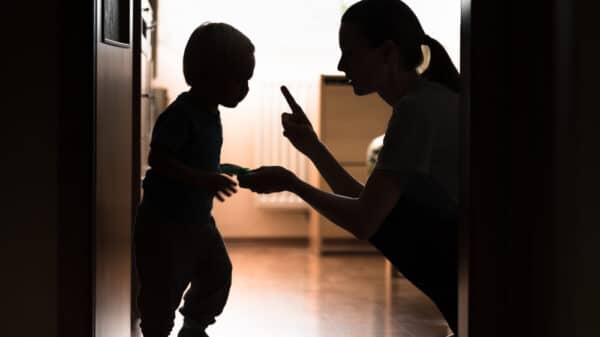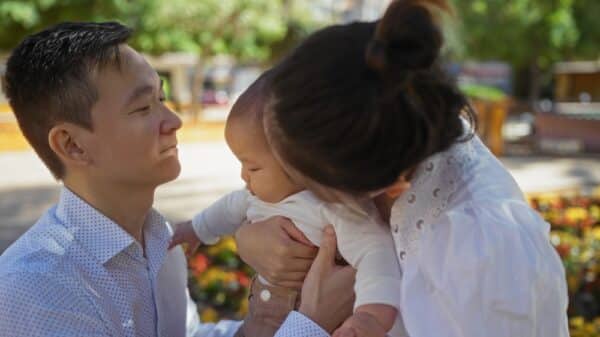A friend of mine once remarked, “If you want to teach your children about death, just watch a Disney movie.” She was right. My daughter was only 4 when she first started asking about death. We had just finished watching *The Lion King*, and although she had seen *Frozen* and *Cinderella*, the concept of death didn’t resonate with her until the tragic scene of Mufasa’s demise and the elephant graveyard. Shortly after, she connected this theme to our aging dog and began to ask numerous questions about what happens after we die.
My partner and I felt unprepared for these heavy conversations with our child, yet her fascination with the topic was so strong that it prompted us to consult her pediatrician. As with many parenting concerns, her inquiries fell well within the realm of “normal for her age.” According to *The New York Times*, children around the age of 4 can understand four key aspects of death: non-functionality (the body no longer functions), universality (all living things eventually die), irreversibility (once someone passes away, they cannot come back), and inevitability (death is unavoidable). I longed for my children to grasp these ideas through a real-world example, like the little goldfish that went to the toilet. However, reality doesn’t always play out as we expect.
A phone call on a Monday, amid my workday, thrust me into a harsh truth: my father had suffered a heart attack. It was sudden and unexpected, and it took his life. An overwhelming mix of shock and sorrow washed over me as I realized I had mere hours before our two daughters would return from daycare.
“What should I tell them?” I wondered. “They are so young; is it better to keep it from them?” A flurry of questions consumed me as I tried to grapple with my own deep grief, made even heavier by the sadness they would soon face. Our instinct often drives us to protect our children, but it can be challenging to determine the right words or actions. Fortunately, my husband found a helpful article on *Psychology Today*, which advised parents to be honest and use the word “died.”
So we did. When my girls returned, I took the hands of my 6-year-old and 3-year-old, settled them on the couch, and shared the heartbreaking news: their papa had died. My 6-year-old broke down in tears, and we embraced, crying together. Meanwhile, my 3-year-old looked utterly confused.
A series of questions followed. “How did he die?” (His heart stopped beating.) “Couldn’t the hospital help him?” (Courageous people nearby and doctors tried, but they were unable to save him.) I noticed my 6-year-old’s childhood innocence evaporate as she grappled with the painful truth that tragic events can befall those we love. Despite our hopes and preparations, life remains unpredictable.
While we are still in the early phases of grief and have not processed everything, we have turned to articles, our experiences, and professional guidance. Here are some insights aimed at assisting parents and children on this difficult journey of mourning and loss.
How do I explain to my child that someone is dying or has died?
The child’s age and the context surrounding the loved one’s death are significant factors in deciding how to communicate. Children under the age of 3 often do not understand the permanence of death and may struggle to grasp what is being communicated (as I noticed with my 3-year-old’s response). For those over 3, experts generally recommend being honest, stating the facts, and using the words “dying” or “dead.”
It can be tempting to use euphemisms like “Grandpa is gone,” “passed away,” or “is asleep.” In doing so, children may believe the person will return since when someone is simply ‘gone’ or ‘asleep,’ they usually come back. Since children often interpret what we say literally, softer terms or metaphorical language can lead to confusion or, worse, anxiety. For example, saying, “Grandpa is always watching over you” could unintentionally associate their grandfather with ghosts or other concepts that might frighten them.
Should I take my child to a funeral or memorial service?
We faced this dilemma ourselves and ultimately decided to bring our 6-year-old while arranging for our younger daughter to stay with a caregiver. Even as we arrived in the parking lot, I questioned the soundness of our decision.
Sorensen often advises her clients that if a child isn’t developmentally capable of understanding death, such ceremonies may not be appropriate for them. Though a bright child might cognitively grasp the concept of death, they may not be emotionally prepared for its consequences. However, in cases of significant loss—like that of a parent or sibling—the circumstances may differ.
Furthermore, Sorensen and our daughter’s kindergarten teacher stressed the importance of maintaining children’s routines. “As adults, we are expected to take time off for services and mourning,” Sorensen explained. “But for children, keeping them in their usual routines helps them feel safe.”
In the end, we were thankful for our choice to include our 6-year-old in my father’s funeral. I will always cherish her innocent inquiry, “Are all these people here for Papa?” Mister Rogers, whom I often reference for parenting advice, highlighted that children can comprehend and process complex issues when we give them the opportunity to do so. I’m grateful we afforded her that chance.
Should I put on a brave face in front of my kids while grieving?
Let’s be honest: children are familiar with tears. Crying is often their primary method of expressing strong emotions. Letting your children witness your tears allows them the space to express their feelings as well. Grief is an unavoidable aspect of life, and even if you try to suppress your emotions for your children’s sake, those feelings will eventually resurface. By being open and showing your children that expressing feelings is acceptable, you may help lay the foundation for their own healthy emotional expression in the future.
However, there are times when the weight of grief can feel overwhelming. Initially, I found myself withdrawing from others, which is a common reaction. Yet, during these periods, our children often need us most. I soon realized I needed their support too. Embracing each other can be healing, and hearing them share their memories encouraged me to open up about my own.
Will my children remember my loved one who passed away?
This question lingers heavily in my thoughts as my dad’s passing becomes part of our family story. It comforts me that memories and love endure, but I am saddened by the experiences that will never occur. One of my biggest fears is that my youngest daughter might not remember my dad at all, despite the close bond they shared.
Continuing to tell stories about your loved one and encouraging friends and family to share their memories can help keep their spirit alive. Creating personalized photo books (or custom board books for infants) can help solidify the person’s importance in the lives of young children. My husband made unique photo puzzles for each grandchild, as my dad loved assembling puzzles with them on the floor. For older kids, you might engage them in making a special keepsake.
I have also been surprised by how often my daughters spontaneously share memories or thoughts. Just recently, my 6-year-old asked if we could display Papa’s picture for Dia de Los Muertos this year, a notion sparked by her viewing of *Coco*—Disney strikes again.
When should I consider seeking additional help for my grieving child?
No two children grieve in the same way, and there’s no set timeline for their grieving process. Nevertheless, Sorensen suggests seeking professional support if your child undergoes a significant loss and exhibits new behaviors such as:
- Nightmares and trouble sleeping
- Changes in appetite
- Behavioral issues
- Having an enduring obsession with death that lasts for months following the loss
It may also be beneficial to consult adults involved in the child’s life—like teachers, coaches, or caregivers—to find out if they have noticed any unusual behavior.
“Just like adults, children can suddenly be reminded of the deceased by unexpected triggers,” notes Ele’s Place, a healing center for children and teens. “Younger children may even struggle to articulate how they feel or why.” Numerous resources are available to help kids (and parents) navigate one of life’s most challenging paths. No one should have to face it alone.



































